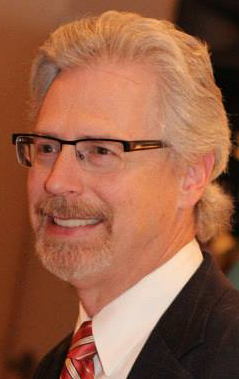I’m Not God: 10 Things Pastors Wish They Could Say to Their Church Members
We pastors care deeply for our church members. We think about you during the week, pray for you, and want to do whatever we can to give you spiritual comfort. But one pastor serves many parishioners, and not all of you are equally sensitive to your pastor’s feelings and needs.
Story by Loren Seibold / This article is reprinted with permission from the 1st quarter 2016 Elder’s Digest
What follows applies to only a small number of people in a congregation, but that small number can do a great deal of damage and may help to account for why only one out of 10 pastors will last to the end of his or her career. Your pastor probably won’t say these things to you—church relationships are too delicate—but, on occasion, they wish they could.
So here are 10 things, in no particular order, we pastors would sometimes like to say to a few of our church members:
- I have many parishioners, too many to call every day, so I may not know when you’re sick, discouraged, or otherwise in need of pastoral care. If you want me to do something for you, perhaps you might tell me what’s happening in your life rather than just complaining to others that I wasn’t there for you.
- If you say hurtful, unkind things about me and my family, my feelings can be hurt, and I may even become a little angry. I’m not a punching bag. It is likely that I will minister to you less effectively—and certainly less cheerfully—after you’ve insulted me.
- Just because you have a strong theological opinion doesn’t mean that my different one is wrong or that you have the right to judge me as unfaithful. Some of the topics we talk about in church have been under discussion for 2,000 years or more. It’s unlikely that you’re the only one who’s ever thought clearly about them. And, by the way, attacking others on points of theology when your own family is a mess doesn’t make you look better.
- It is entirely possible that I walked by you at church on Sabbath morning without acknowledging you. During those two or three hours, I teach a class, run the service, preach, and try to minister to those who are actually in crisis. If I neglected you, I’m sorry, but I can assure you, it wasn’t intentional. So please don’t go around telling people that I ignored you.
- I provide leadership, but I can’t do miracles. When we’re talking in a board meeting about where the money is going to come from to keep the church school afloat (the school to which you won’t send your own children) and you turn and look at me as if I have the answer, you may be disappointed.
- My sermons might not be as good as the ones you hear on TV or radio. But when you send your tithes and offerings to them rather than to your local church, please remember that these celebrity preachers won’t come to the hospital to anoint you or be there to do your marriages, baptisms, and burials. I will.
- It doesn’t help at all to tell everyone else you’re up- set with me if you don’t tell me. Before you grumble to everyone in church, you might want to consult Matthew 18:15-17.
- If you get stars in your crown for bringing people to the Lord, what will you get for chasing people away from the church with unrelenting criticism and continual controversy?
- I suppose that calling me at the last minute on Sabbath morning to tell me you’re not going to be there to do the task you’re scheduled for is better than just not showing up, but couldn’t you have called a replacement? I’m not relaxing on Sabbath morning just waiting for you to give me something to do. And, as hard as I’ve tried, I can’t be in two places at once.
- You say you want to be the pastor’s friend. I should warn you that, for the reasons noted above, we pastors have become wary of friendships in the congregation. Please understand if I don’t let my hair down with you. I care deeply about you, but I may prefer to keep our relationship professional. It’s safer that way.
 I don’t mean to be scolding or accusing; I’m just reminding you that your pastor is not God. We’re not omnipotent, omniscient, omnipresent, or omnibenevolent. We do our best, but we can’t be all things to all people all the time. Would you be so kind as to take this into account when you work with us or talk about us to others?
I don’t mean to be scolding or accusing; I’m just reminding you that your pastor is not God. We’re not omnipotent, omniscient, omnipresent, or omnibenevolent. We do our best, but we can’t be all things to all people all the time. Would you be so kind as to take this into account when you work with us or talk about us to others?
Loren Seibold is a pastor in the Ohio Conference

Add new comment